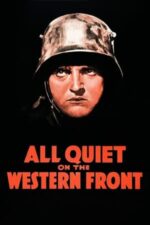Beyond Flags and Fireworks: Exploring Patriotism on Screen
Isn't it fascinating how "patriotism" can feel so…complicated these days? We’re bombarded with images – flags waving, anthems soaring – but what does genuine love for one’s country really mean? It’s a question that cinema has wrestled with for decades, often in ways far more nuanced than the simplistic narratives we sometimes see. And it's not always about rah-rah displays of national pride; sometimes, true patriotism lies in questioning, challenging, and even defying authority – all in service of what you believe is right for your nation.
Think about The Big Parade (1925). It’s a classic Hollywood war film, yes, but it's also surprisingly insightful. The protagonist, an idle rich boy seeking adventure, discovers the brutal reality of trench warfare and finds genuine connection with working-class soldiers. His patriotism isn’t born from abstract ideals; it’s forged in shared hardship and camaraderie – a powerful reminder that national identity is often built on the bonds between ordinary people. It's a far cry from the sanitized versions of war we sometimes see today, and it asks us to consider what sacrifices are truly worth making.
Then you have films like Stanley Kubrick’s Paths of Glory (1957), which takes a decidedly darker look at patriotism. Set during World War I, it exposes the callousness and corruption within the French military, highlighting how blind obedience can be exploited for political gain. The film isn't anti-France; it’s anti-war, anti-injustice – and arguably, that is a form of patriotism: a desire to see your country live up to its ideals. It’s a tough watch, but incredibly important in prompting us to examine the systems we trust.
More recently, films like False Flag, with its morally ambiguous protagonist caught in a web of espionage and false operations, really dig into the grey areas. Is he acting patriotically by following orders, or is his loyalty misplaced? It’s uncomfortable territory, but it reflects our own anxieties about national security and the compromises we make in its name. Similarly, Unnaipol Oruvan explores a vigilante's actions – are they patriotic acts of bravery or dangerous oversteps?
Even something as seemingly straightforward as The African Queen, with its unlikely heroes battling German forces, touches on patriotism. It’s not about waving flags; it’s about doing what’s right in the face of adversity, a quiet defiance that speaks volumes. And then there's Twenty-Four Eyes, which shows how patriotism can be intertwined with resilience and community survival amidst hardship – a poignant reminder of shared humanity across borders.
Ultimately, these films demonstrate that patriotism isn’t a monolithic concept. It’s a complex emotion, often fraught with contradictions and difficult choices. It's not about blind allegiance; it's about striving for a better nation, even when that means challenging the status quo. And that, I think, is something worth celebrating – and exploring on screen.
What films have you seen that explore patriotism in interesting ways? Let’s chat!







































